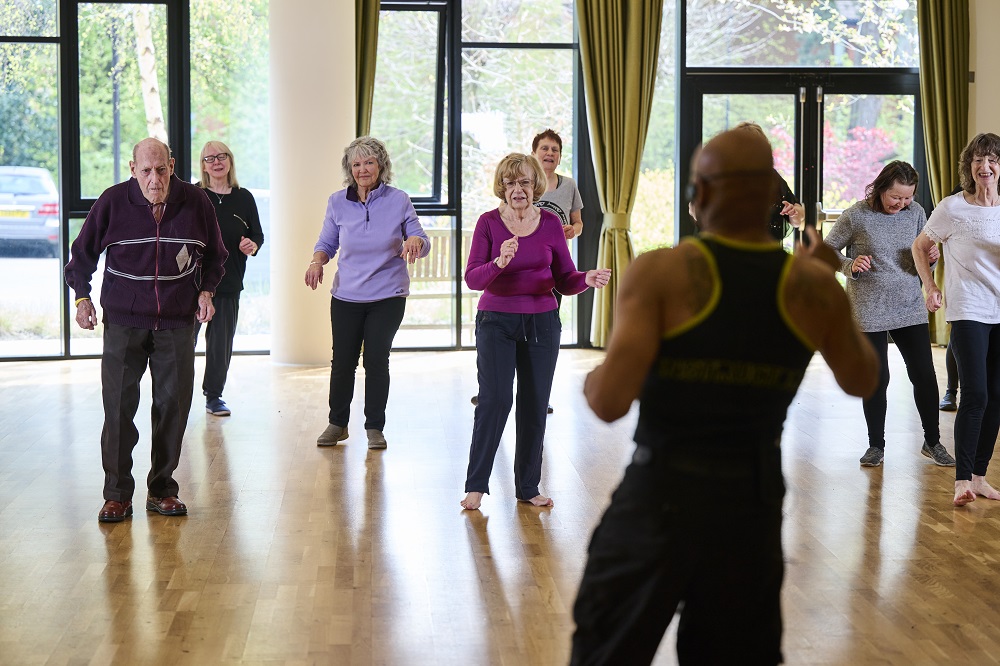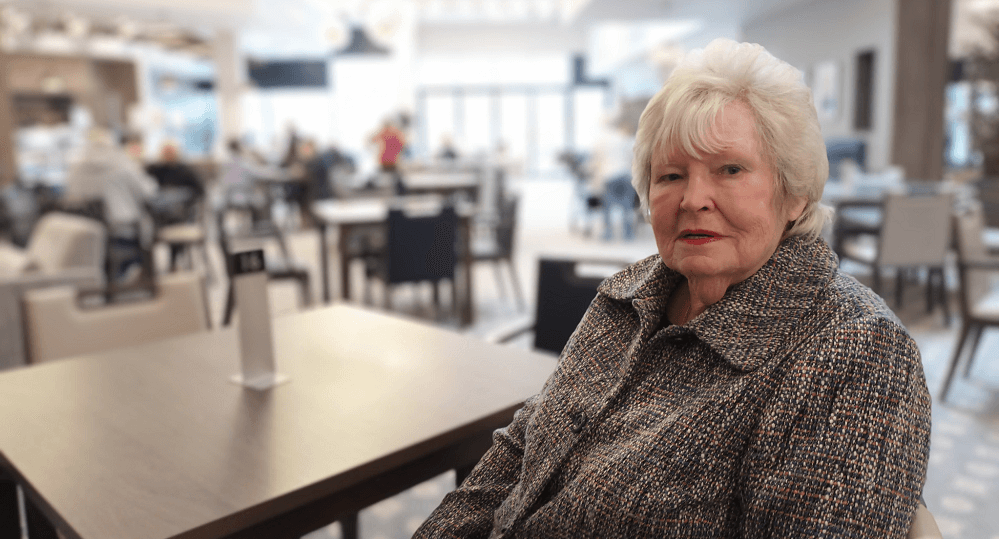How retirement villages are reducing the impact of the ageing population on the NHS
Research with older adults is growing in significance as the population ages. Often on the news, we hear about the aging population, but what is the impact? It doesn’t only affect those in receipt of healthcare, but also their families and those delivering care. Throughout the UK there has been a rise in relatives ‘informally’ caring for loved ones at home. This not only impacts the NHS and local authorities’ ability to deliver health and social care services efficiently, but it also impacts thousands of families in a number of ways, including housing needs, their finances and their wellbeing to name a few.

As a result of this, we at ExtraCare worked with Aston and Lancaster Universities in a 6 year study, looking into how our unique model of integrated housing, health and social care makes a real difference to older people’s lives and the wider community. The research tested the impact of ExtraCare’s approach on both quality of life and cost of social care, ultimately proving that our charity’s lifestyle model delivers significant health improvements.
Nineteen retirement villages and smaller housing schemes were included within the research assessments, with data being collected after 24, 36, 48 and 60 months, from the 160 residents involved.
Key findings from the research projects are as follows:
- NHS costs reduced by 38%
- Unplanned hospital stays reduced from 8-14 to 1-2 days
- 46% reduction in routine and regular GP visits
- 14.8% reduction in depressive symptoms in 18 months
- 23% decrease in anxiety symptoms
- Significant improvements in the level of exercise done by residents (75%)
- Increase in walking speed and a reduction of falls over the first two years
- The increase of frailty is delayed or reversed in residents
- 24% increase in autobiographical and 17% increase in memory recall tests
- 86.5% of residents were ‘never or hardly ever’ lonely
Shirley Hall, former Head of Innovation and Wellbeing at ExtraCare, said: “We’re excited by the results of our study, we know older people who exercise tend to be happier and are likely to live longer healthier lives, so it’s great to see that residents within our communities are more physically active.
However, the results do show a small number of residents are feeling lonely, so we need to help identify and support those who are. We know from the study that working on autobiographical memory is one area that our residents can work on to help improve ‘social connectedness’ and loneliness further, and supporting residents with mobility issues to build resilient social networks will be critical in reducing their level of loneliness over time.”
Going forwards, the results from the studies have led us to make the following commitments:
- Review social networks and loneliness scores in residents with mobility issues or reduced mobility to identify a specific intervention to address their needs.
- Relaunch our ‘buddy’ system – helping resident volunteers to support new residents to ‘settle in’ and ensure they feel welcomed and part of our family.
- Work with Cruse Bereavement Care, a peer support model where residents provide ‘listening support’ to other residents who have experienced loss and bereavement.
- Ensure we always undertake specific personal goal setting with residents after their wellbeing assessment to improve their frailty levels.
- Work with others to identify specific interventions that could help improve autobiographical memory for residents.
- Link up our Wellbeing Advisors to work with the Fitness Instructors and Activity staff to refer residents who are physically frail to specific activities that will improve physical frailty.
- Offer more support and care plans to reduce or mitigate the risk of falls, to reduce this down further.
- Adopt the Gold Standards Framework, optimising care for all residents approaching the end of life.
When former Director General of Age Concern, the late Baroness Sally Greengross OBE visited Hughenden Gardens Village, she said: “It’s terribly important that the example ExtraCare has set is more widely known and communicated to society, particularly people in local governments so that they can realise the benefits to the health service that these villages bring. These communities also help the increasingly difficult issue of social care, because care is on offer to those residents, if and when they need it, but with an emphasis on when you’re fit and well, being able to be independent.”
As stated in the above commitments we have made to our charity, and to also echo Baroness Sally Greengross OBE’s previous comments on independence, retirement villages aren’t just for those with a care need. A huge element to ExtraCare’s model is independent living, but also the community spirit.
Many who move into a retirement village have often had a bereavement, or generally feel very isolated in their later years, but the combination of volunteer roles, social clubs and facilities within the villages help to combat loneliness amongst the older generation.
Solihull Village resident Anne, says “Loneliness is the biggest killer, that’s what I say to people. You have to think of the future. To me a place like this is the future.”

Anne’s story:
“I found myself at Solihull Village after a tough time. I was in a private complex of small apartments when I had an accident helping my husband who had been ill. We waited on the floor for nine hours before help arrived. We had two ambulances arrive for us, mine went to Heartlands hospital, his to the QE (Queen Elizabeth hospital), it was the last time we saw one another.
After my husband passed away, I couldn’t bear to stay at my old apartment complex alone. It was so quiet, and I never saw a soul. My daughters were the ones who found and suggested Solihull Village, I couldn’t have picked anything better.
I’ve been here two years in June, and it was the best decision I could have ever made, being here now, I wouldn’t be anywhere else. There are some great people, close friends, I’d do anything for all of them.
I am in the resident’s committee and my job is to come and welcome the new people and be a point of contact for them. They can approach me and anything I can help with they can talk to me, and I share with staff if necessary. There are so many things happening here… I can’t praise this place enough. It’s a real community.”
I can speak on behalf of everyone at ExtraCare, and all of our peers in the retirement living sector, that we are so incredibly proud to have Anne and thousands of others in the UK say that a retirement village has “saved my life.”
Similar Stories
The 6 signs you’re lonely in retirement and how to overcome it
In this blog post we recognise the signs of being lonely in retirement, and more importantly, how to overcome it.
August 27, 2024
Dementia Action Week: Dementia Diagnosis
In celebration of Dementia Action Week, we sat down with our newly appointed Dementia and Wellbeing Lead, Katherine Sweet to discuss this year’s theme “Dementia Diagnosis”, the benefits of early diagnosis and the support we can provide to our residents.
May 18, 2023


